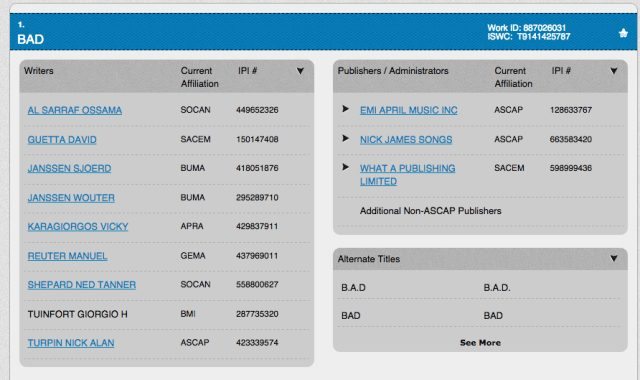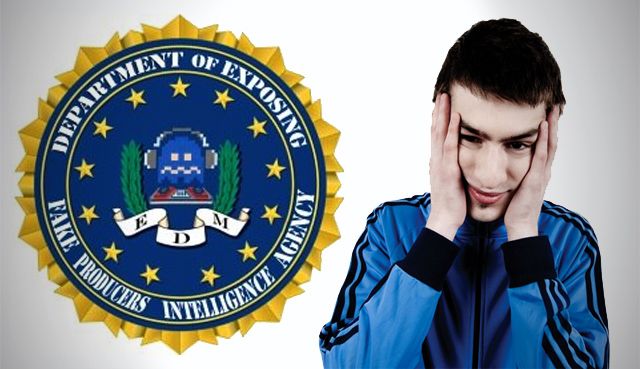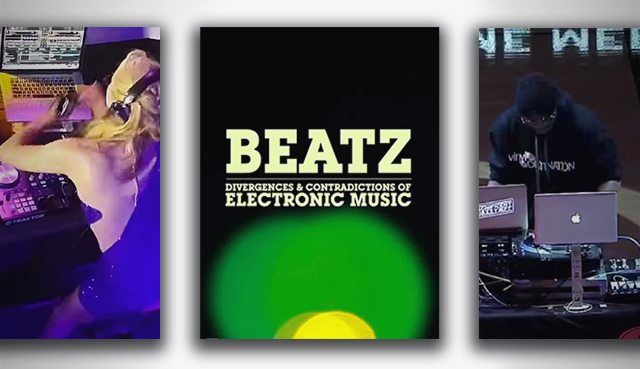Over the last week, we’ve seen Grammy-nominated DJ and producer Mat Zo begin highlighting what he feels like is one of the biggest issues in the electronic dance music scene right now: the use of ghost producers. With the help of a few other Twitter sleuths, the Fake Producers Intelligence Agency, and a keen eye on ASCAP’s writing credit entries, we’re seeing a bunch of ghost producers for big name acts revealed.
The cool people came with their money and ghost producers and us nerds had to start competing with then
— . (@Mat_Zo) May 29, 2015
Who’s On Blast?
There’s been a few people on Twitter who have compiled and doing their best to figure out exactly what producers are operating as a ghost producer for major artists. In addition to Mat Zo and the Fake Producers Intelligence Agency, another producer Kloak has been keeping a running list of ghost producers:
— Kloak (@Kloaked) June 2, 2015
It’s a bit hard to read – but on each line, the ghost producer is before the hypen on each entry. What’s really interesting is that some of these producers are clearly making a career out of producing for big tracks – look at Maarten Vorwerk, who apparently has written songs for Dimitri Vegas & Like Mike, DVBBS, Danny Avila, Quintino, Yves V, Spencer Tarring, and Helena. That’s a lot of success for someone who isn’t a well-known name themselves.
Of course, not every person on here is upset about being a ghost producer – some producers are happy to help out another artist on a track in exchange for money (or not!) – but ultimately it starts to feel a little questionable when a lot of one artist’s songs have someone else working on writing the track.
How Can You Be Sure? Using ASCAP’s Catalog

When big names acts use ghost producers, they might agree to give them a song writing credit (if the ghost producer is very lucky) – which for the most part is completely ignored. But to properly track the rights on a song, artists and labels have to give a complete list of writing credits to music performance rights organizations like ASCAP. ASCAP has a public-facing title search engine that allows anyone to look up the exact list of writers (this includes all co-producers) on a track.
Very quickly you can start to see some of these names come up time and time again for certain artists – this is a major clue in finding ghost producers. Of course, not everyone listed on a song is a ghost producer, some of them might be contributing in other ways.
The Moral Thing To Do
There’s an interesting moral discussion to be had around ghost production – on one hand, using a ghost producer and taking full credit for it yourself feels incredibly wrong to a lot of people. In non-electronic music, if you invited another person to come work on a song with you and play instruments and rewrite the song, you either called them your producer or a member of your band. But now there’s an industry behind silent producers – so much so that there was even a massive ad for the services in a recent issue of DJ Mag:
this is a real ad in this month’s @DJmag for ghost production services pic.twitter.com/0J8Obhvw3h
— EDMsnob (@EDMsnob) June 2, 2015
We also have to assume that there are loads of ghost producers who are not and will never get revealed to the public, as well as many more who are paid incredibly poorly and never given a percentage of a major hit song’s income. This seems borderline abusive – and all producers who ever write tracks for another artist should push to be credited and paid according to the song’s success. The names that show up in ASCAP title listings are the lucky ones. We’re betting that there are hundreds more who deserve recognition for the success of some big name artists who will never be revealed.
What do you think of the ghost production industry? Know any artists who the FPIA should look into?
Read more: Will Producers Make DJs Obsolete?








